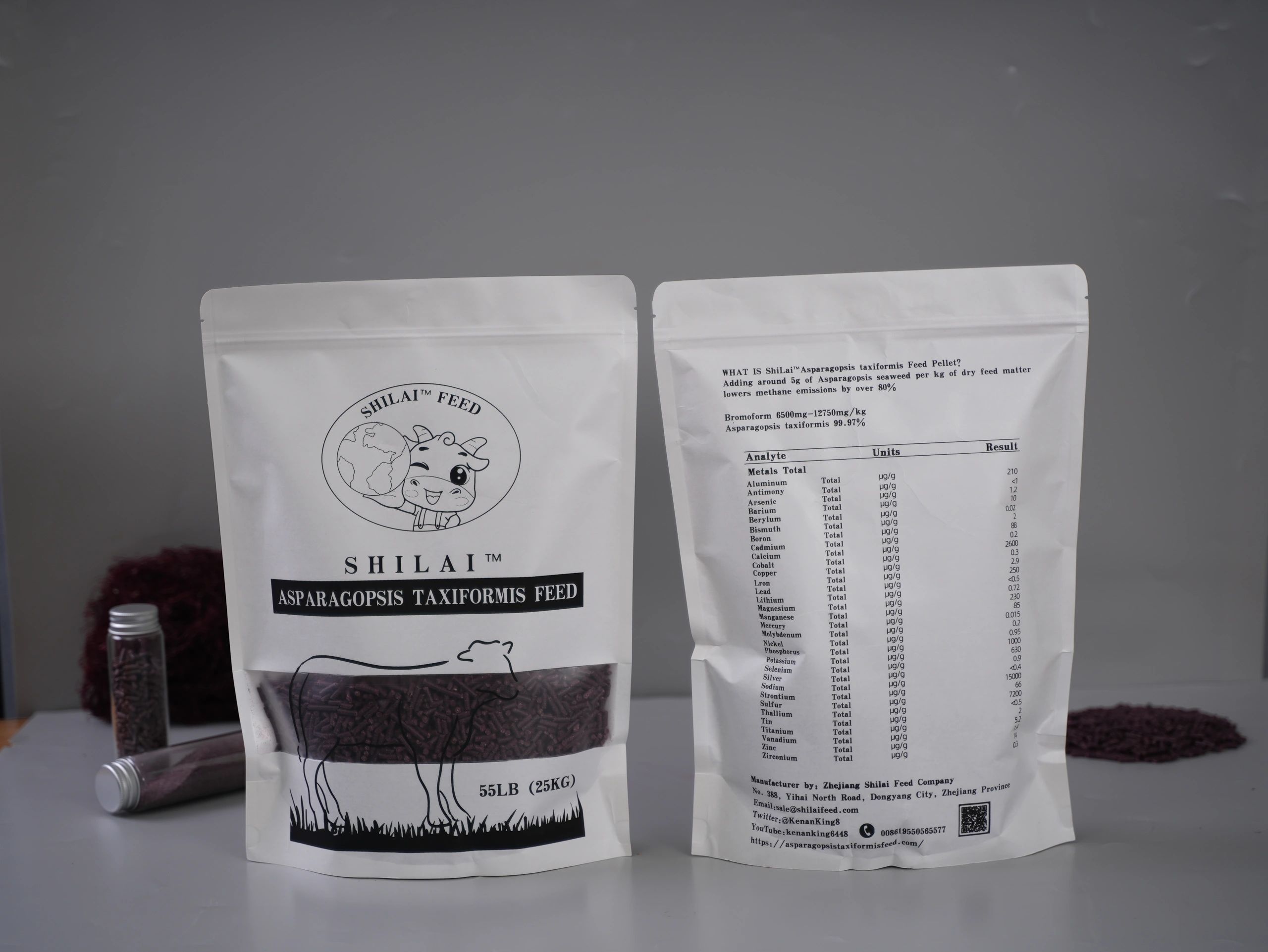Worldwide agriculture accounts for a significant portion of greenhouse gases, with livestock as a chief contributor.
Methane is a powerful greenhouse gas that has a much higher warming potential than carbon dioxide, posing urgent climate risks.
A red seaweed called Asparagopsis taxiformis has surfaced as a potential game-changing tool to lower methane produced by grazing animals.
The seaweed’s chemical constituent limits the activity of methane-producing microbes in the rumen, decreasing emissions.
Integrating Asparagopsis taxiformis into livestock feed has shown positive findings in pilot studies that indicate a feasible way to lower emissions from livestock.
- Furthermore, Asparagopsis taxiformis delivers a range of complementary benefits beyond methane mitigation.
- Enhanced nutritional value for livestock
- Opportunities to develop sustainable aquaculture-driven industries
Even though extensive research and validation are ongoing, Asparagopsis taxiformis appears poised to be a meaningful mitigation option.
Activating the Potential of Asparagopsis taxiformis Powder in Feed Formulations
Powdered Asparagopsis taxiformis offers a convenient avenue to integrate its methane-cutting properties into commercial feeds.
This marine plant contains bioactive and nutritional traits that can enhance livestock performance and productivity.
Employing A. taxiformis powder in feed mixes has achieved methane declines in trials and may improve micronutrient profiles.
Further rigorous research is crucial to optimize dosage, processing, and long-term safety to unlock full commercial potential.
Asparagopsis taxiformis and the Next Era of Sustainable Animal Production

The red alga is earning traction as a tool to mitigate the ecological harms linked to conventional livestock production.
Adoption of the algae in feed could enable measurable reductions in methane and a smaller ecological footprint for farms.
Evidence shows Asparagopsis can have positive impacts on animal health and productivity alongside emissions reductions.
Although long-term effects and large-scale feasibility still require study, initial outcomes are encouraging and worth further pursuit.
Methane Reduction Through Asparagopsis Feed Additive

Research highlights Asparagopsis as a potential, effective way to minimize methane from ruminant animals.
Compounds in Asparagopsis act on rumen microorganisms to suppress methanogenesis and lower methane output.
- Academic trials have recorded significant methane decreases for animals fed Asparagopsis under experimental conditions.
- Asparagopsis feed inclusion is recognized as a green approach to mitigating livestock methane.
- Agricultural stakeholders are evaluating the practical adoption of Asparagopsis within farm feed programs.
Asparagopsis: The Marine Ingredient Shaping Sustainable Livestock Systems
A promising marine-derived solution has appeared, with Asparagopsis taxiformis capable of cutting methane in ruminants.
- Experimental feeding of Asparagopsis yielded large methane reductions, suggesting important environmental gains.
- This seaweed breakthrough may foster a new balance between productive farming and reduced ecological impact.
As decarbonization efforts accelerate, Asparagopsis represents a distinctive marine-based pathway to reduce agricultural methane.
Enhancing the Efficacy of Methane-Cutting Feeds Containing Asparagopsis taxiformis
Research targets include processing optimization and dosage determination to increase A. taxiformis impact on methane reduction.
The Science Behind Asparagopsis taxiformis's Methane-Lowering Effects
Mechanistically, Asparagopsis acts on methanogens in the rumen, disrupting the biochemical pathways that generate methane.
Bromoform-type compounds found in Asparagopsis are central to its methane inhibition effect, while scientists examine effects and safety.
Blending Asparagopsis into Diets for More Sustainable Farming
The species provides a complementary mix of nutrients and bioactives that feed formulators can leverage for sustainability.
Including the seaweed in formulations can supply proteins and trace elements, support digestive health, and contribute antimicrobial effects.
A Sustainable Food System Enabled by Asparagopsis taxiformis
Asparagopsis taxiformis offers a natural pathway to mitigate climate impacts associated with livestock and contribute to sustainable food systems.
- Furthermore, Asparagopsis taxiformis is nutrient rich and can add valuable components to animal feeds.
- Industry and academia are evaluating potential uses of the seaweed across food system and aquaculture contexts.
Scaling Asparagopsis use in feeds may translate into significant declines in agriculture-related greenhouse gas emissions.
Animal Health and Productivity Gains from Asparagopsis Feed Inclusion
The seaweed is gaining recognition for potential dual benefits: emissions reduction and enhancements in animal performance.
Asparagopsis supplementation has been linked to higher nutrient absorption and feed efficiency, benefitting weight and health.
Supplementation may confer antioxidant or immune benefits that bolster animal defenses and reduce susceptibility to illness.
The momentum behind sustainable livestock practices enhances the appeal of Asparagopsis as studies and commercialization advance.
Towards Carbon Neutrality with Asparagopsis-Enhanced Feed Solutions
In response to carbon-reduction imperatives, Asparagopsis could play a role in reducing the climate footprint of livestock farming.
- Scientists believe the seaweed contains compounds that disrupt methanogenesis in the rumen, thereby lowering methane production.
- Experimental work has shown promising methane decreases associated with Asparagopsis supplementation in diets.
Beyond being a lower-emission feed choice, the approach could help reorient food production to align with climate resilience goals.
